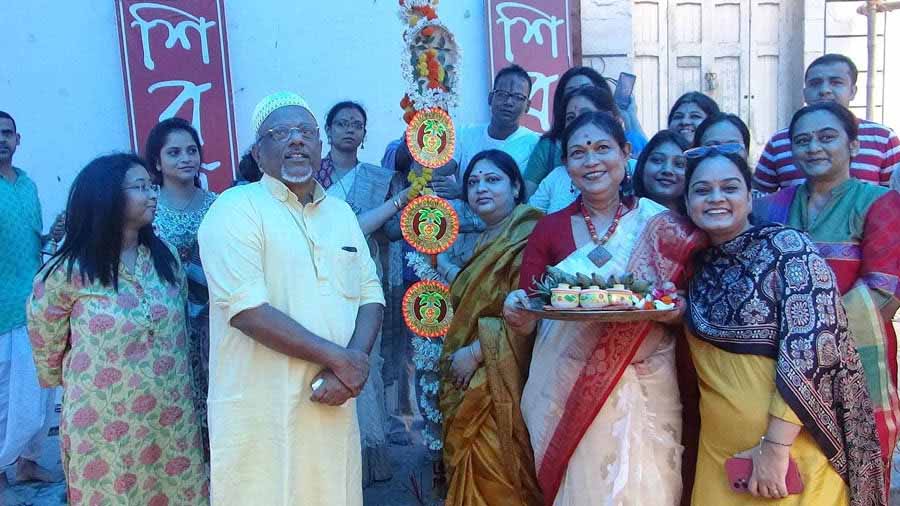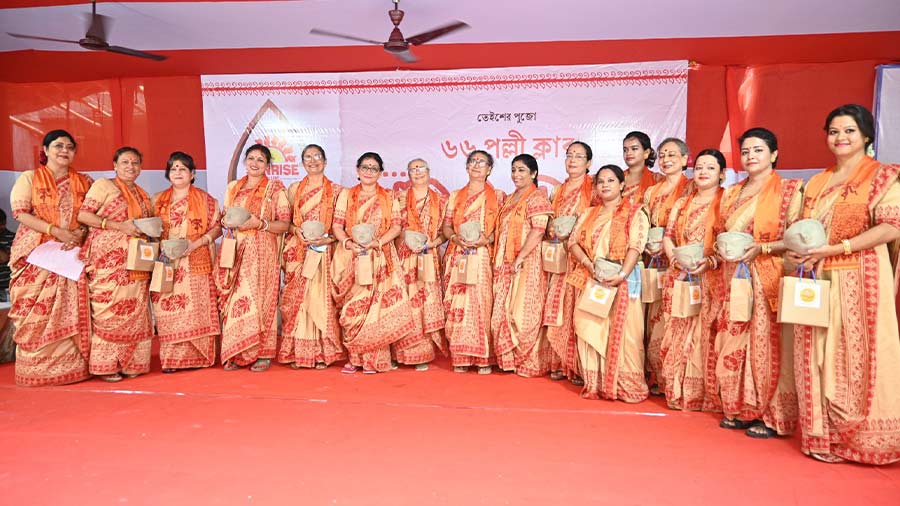A pot of kheer prepared in a Muslim household brings about a sweet union of people of different castes, creeds and communities at the khuti pujo of Shibmandir Sarbojanin Durgtotsav in south Kolkata every year. Mudar Patherya, an eminent writer, started this tradition in 2014 and the ritual continues as a sweet prelude to the festival.
Khuti pujo at Shibmandir has been a big affair for several decades. Patherya, a resident of the area, wanted to be a part of the celebration and began by contributing funds to the puja and distributing sweets during the community feast.
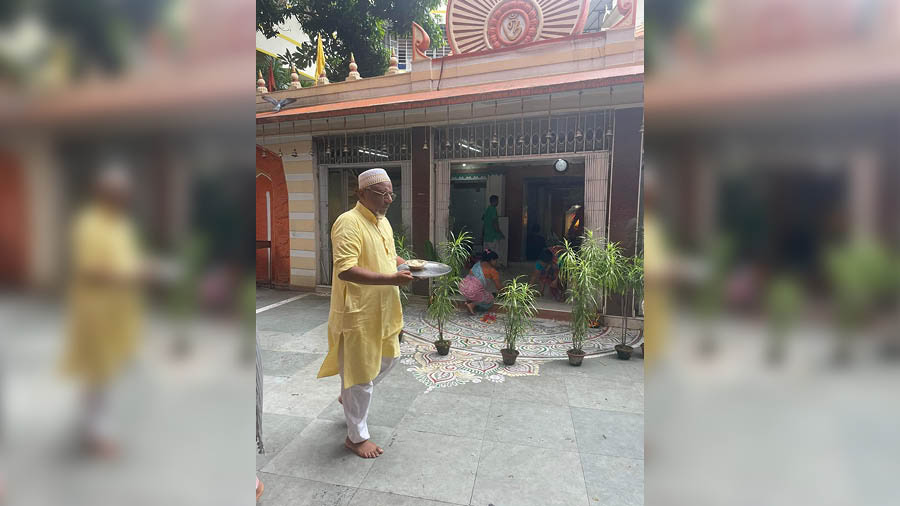
Mudar Patherya serving homemade kheer has become a ritual at Shibmandir's Khuti Puja Mudar Patherya
“I would see people coming together to celebrate and wanted to become a part of it. Initially, I began by funding the mishti. I told the organisers that I would love to contribute and henceforth they would buy the sweets and send me the bill. One day, I realised that it was such an impersonal way of doing it. That's when I decided that I would go and buy the sweets on my own,” Patherya recalled.
Thinking of ways to make his participation even more heartfelt and personalised, Patherya offered to make the kheer that was served at the khuti puja at his home. He didn’t stop there. He would join the gathering himself and serve the kheer himself. The kheer is made by Patherya’s “man Friday Sanoj”. “I wanted to get involved personally because it was my para, hence it was my pujo too. It did not matter whether I believe in the iconism or the ritual, I believed in the togetherness that the khuti pujo brought about.”
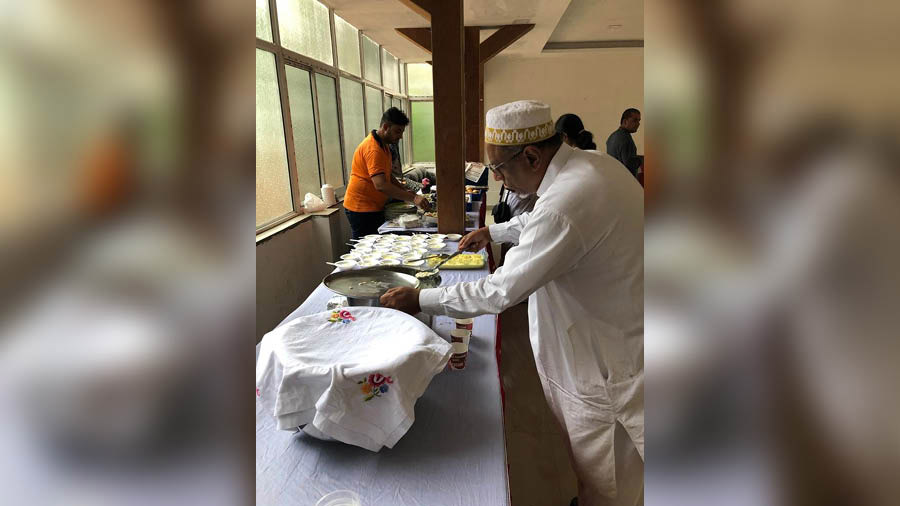
Mudar serving kheer back in 2019 Mudar Patherya
After continuing with the ritual for a few years, Patherya felt the need of more people from the Muslim community engaging in the exercise. He called up his peers and invited them to join him. "I felt the message of unity should come across loud and clear. I asked some friends from the community to join in and enjoy the festival of togetherness,” he said.
This year was no exception, joining Patherya and his wife Shalini was their friend Zeeshan Majid, the founder of an NGO. To make a statement, Patherya also wore his skullcap and kurta while he served the kheer to the residents of the area.
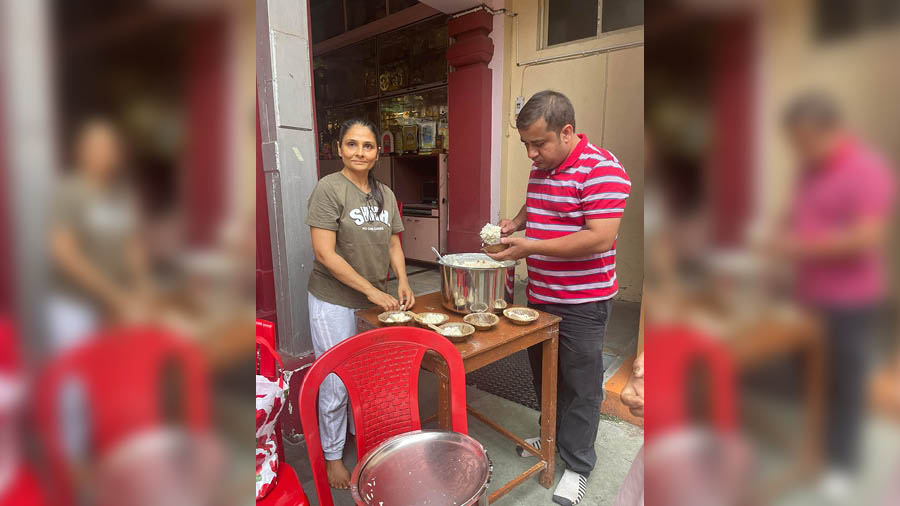
Shalini Patherya and Zeeshan Majeed helping Mudar to serve the kheer Mudar Patherya
While others appreciate this extraordinary initiative, the puja organisers refuse to see it differently.
“Khuti pujo is one of the most significant occasions for the committee. We all come together to celebrate it, summoning the arrival of Maa Durga. A grand feast is organised on the occasion and for the last few years we know that the kheer comes from one of our own people. Whether they are Hindu or Muslim or Christian is not a big deal. The love and gesture of Mudar Patherya is special to us,” said Partho Ghosh, general secretary of Shibmandir Sarbojanin.
Hundreds of people gather for the khuti pujo feast every year. Since the pandemic, the number has gone down and this year the footfall was near about 40. However, there was no dearth of spirit and enthusiasm.
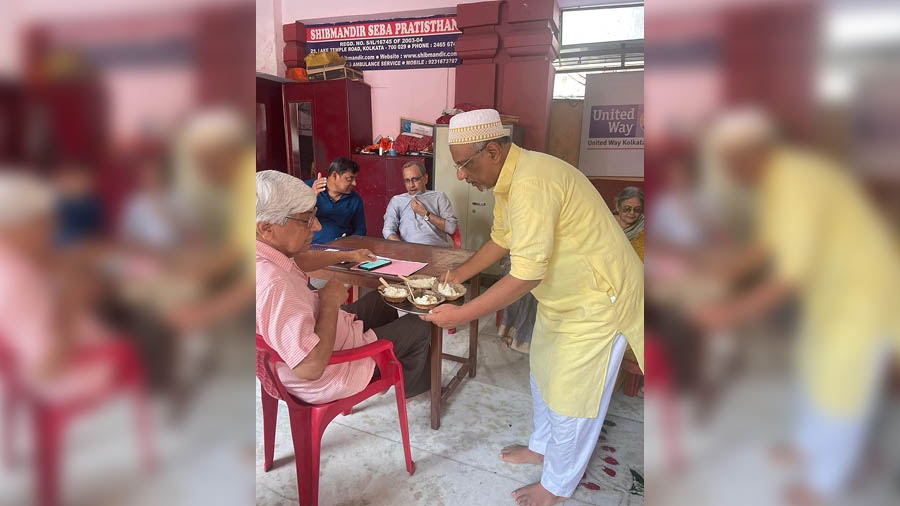
Mudar Patherya serving kheer in his skullcap and kurta Mudar Patherya
Anuradha Dalal, a resident of Lake Temple Road, has been a part of the celebrations since she came to this locality after marriage. To her, the participation of the Muslim community in a Hindu festival seems like a celebration of unity. “It's been 22 years since I have been living here and I actively participate in the Durga Puja festivities. The kheer from Mudar's house on the occasion of khuti pujo is something iconic and everyone looks forward to it. Besides being a symbol of unity in diversity, it also signifies how Durga Puja has made its place in everyone's heart going beyond its religious aspect. It is not just a festival for the Hindus, it is a festival for all Kolkatans now.”
Patherya's Facebook post about the Muslim involvement in the Shibmandir khuti pujo has been receiving a lot of love from netizens over the past few days. Concluding his post, Patherya writes, "In a world where there are innumerable reasons to question why, there is a premium on fitting in and finding reasons to counter with ‘Why not?’"
